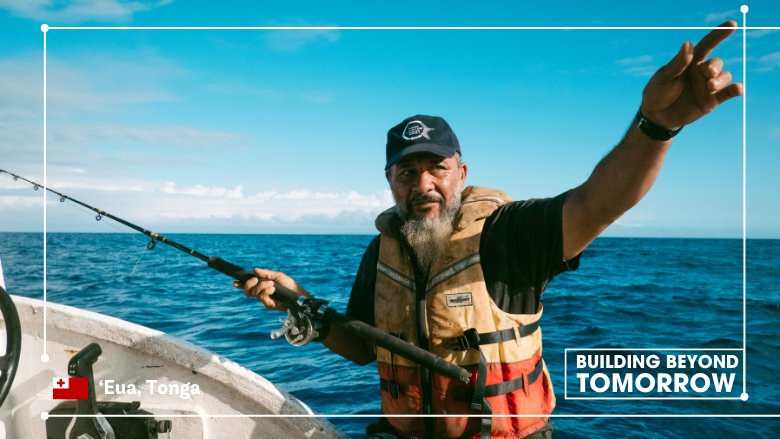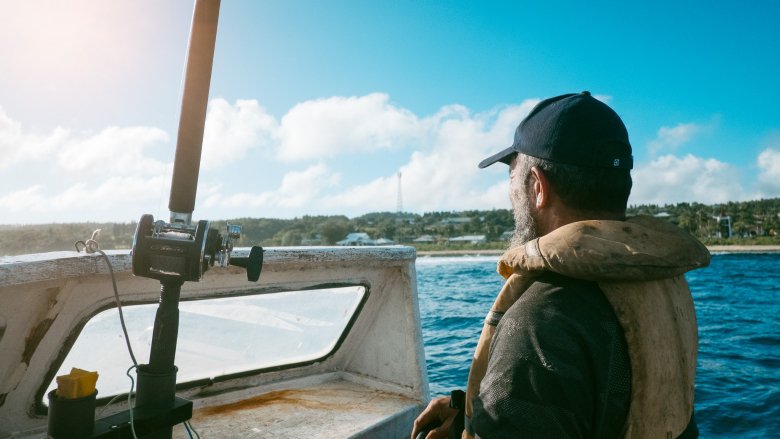For Christopher Vaohea, the sea is a powerful force. As a fisherman from ‘Eua Island, in the Kingdom of Tonga, it is the source of his livelihood, his connection to others, and is his life’s passion.
“I’m a proud fisherman. … As fishermen, we protect our island,” Christopher said. “What we do, we provide for the community. We provide for the King. We provide for the people. Fish every day… That’s our life.”
He represents his community as Chair of the ‘Eua Fishing Association, advocating for fishermen's rights and safety. “I meet with the Prime Minister. I meet with the King. That's my job, to inform them of how we are as fishermen,” he said.
After experiencing the tsunami that struck the coast of Tonga in January 2022 – which was triggered by the eruption of Tonga’s Hunga-Tonga-Hunga-Ha'apai volcano, he holds grave concerns about the safety of his fellow fisherman, particularly in the face of a changing climate.
“I was here that day, trying to retrieve my little vessel from here to the safety place at my house,” he says, gesturing to the port that was impacted by the massive wave. “I was already on my way with my little vessel home and the rest of the boats here were devastated…And I thought that day, ‘Is this a safe place for everybody; for the small fishing vessels or the bigger ones?’”
Taniela Fusimaholi, an MP for ‘Eua and former Project Manager for the Tonga component of the World Bank-supported Pacific Climate Resilient Transport Program, is dedicated to helping the community recover and become more resilient. “The tsunami destroyed part of the coastal area, but it also changed the perception of people … and this particular town was severely affected,” Taniela said.
For Christopher, returning to normal life has been challenging, highlighting the need for safer infrastructure. “We don’t know when the tsunami comes again, but we need a safer parking area for the little vessels. That’s what we need.”
The World Bank’s Pacific Climate Resilient Transport Program is helping Tonga address these needs. Satoshi Ogita, the World Bank’s Senior Transport Specialist, emphasizes building more resilient infrastructure to mitigate future climate-related damages.
“Tonga is one of the most climate at-risk countries on earth. Even before 2022’s tsunami, it had been hit by four major cyclones in six years: together with high tides, and floods. And so, the country’s essential transport infrastructure has also suffered.
“What we want to do is to strengthen the resilience of the transport infrastructure to avoid the future damage and the disruption of transport services,” Satoshi said.




